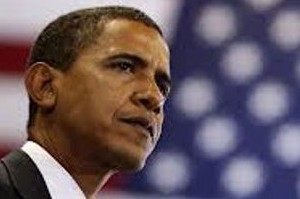 The Leveretts have an article at HuffPo entitled "Obama's Choice: Real Diplomacy With Iran -- or War" wherein they say,
The Leveretts have an article at HuffPo entitled "Obama's Choice: Real Diplomacy With Iran -- or War" wherein they say,
"Tehran's conditions for a long-term deal remain fundamentally what they have been for years -- above all, U.S. acceptance of Iran's revolution and its independence, including its right to enrich under international safeguards. Just as importantly, the Obama administration is no more prepared than prior administrations to accept the Islamic Republic and put forward a proposal that might actually interest Tehran. And Obama's ability to modify sanctions in the course of negotiations -- or lift them as part of a deal -- is tightly circumscribed by laws that he himself signed, belying the argument that sanctions are somehow a constructive diplomatic tool."
Frankly, I don't see the point. By now it is obvious that Obama does not have the balls to take on AIPAC, and yet the US is in no position to start another war either ... So Obama will most likely make all the right noises to keep the Israelis satisfied and yet will kick the ball down the road.
Like I keep saying, if you're expecting these talks to ever pan out, you're betting on the wrong horse. The Israeli influence over US foreign policy has not disappeared by magic -- it is still there, and any US-Iran rapprochement is anathema for them. With Syria wobbling, the US and Israel are not interested in making any deals because their hand could be stronger later if Assad falls. But this assumes that the US is actually interested in making a deal in the first place, rather than dragging out this standoff until there is an opportunity to impose regime-change in Iran (which is and will always be the "best scenario" goal of the US and Israel.) The history of this standoff has shown that's the case: the US has repeatedly batted away opportunities to resolve this standoff peacefully whilst also addressing any actual proliferation threats, and instead has repeatedly deliberately imposed conditions on the talks that were intended to kill any chance for compromise. And in addition, we all know that Obama is simply not capable of making any sort of deal with Iran even if he wanted to anyway, since the removal of sanctions would be the minimum quid-pro-quo demand by Iran, and US sanctions are mostly imposed by the pro-Israeli Congress not the US President. (That fact could not have been made more apparently by the treatment meted out to Hagel in his disgusting nomination process as Obama's Sec of Def.)
In any case I was reminded of an Dec 2006 interview with Iranian Ambassador Javad Zarif published in the National Interest Online site, when he predicted that the sanctions won't have any effect except to act as an obstacle to reaching one of the many compromise solutions offered by Iran and others which would have addressed any real weapons proliferation threats, but certainly they won't prevent Iran from continuing her perfectly legal nuclear program. Amb Zarif pointed out even back then that in fact the sanctions policy seems more intended to prevent any sort of resolution rather than solving the standoff:
"The Security Council sanctions will not be able to stop the Iranian program [and] the sanctions that are requested will not satisfy proliferation concerns. Proliferation concerns—if there are any real, sincere proliferation concerns—can be addressed through mechanisms that would bring about transparency, international monitoring and other possibilities that would provide the assurance that Iran’s program will always remain peaceful. The Security Council can impose sanctions but that does not provide that assurance.
"Because Iran has been denied technology over the last 27 years and this resolution only officiates what has been the policy and practice, Iran has had to be discrete in its acquisitions of peaceful nuclear technology to the point that today Iran’s nuclear program has been localized. Every element of that program is produced locally and our own scientists have developed the scientific know-how in order to be able to sustain the program without any external support.
"That was not always the case. Our desire was to have international cooperation in order to have access to technology. But the option that was provided to Iran throughout the past 27 years—and now more officially in this resolution—is to either accept being deprived of this technology—which is assuming greater and greater significance—or to try to develop it based on our own. Between these two options, we certainly choose the latter.
"If the option were to be provided to Iran to develop this technology through cooperation, that is what we have suggested: an international consortium. Other countries, including Western countries, could own jointly with Iran the facilities, and also jointly operate them. That would give the greatest assurance that these programs are not diverted into any illicit activities."
By CASMII
The Iran Project is not responsible for the content of quoted articles.

 QR code
QR code